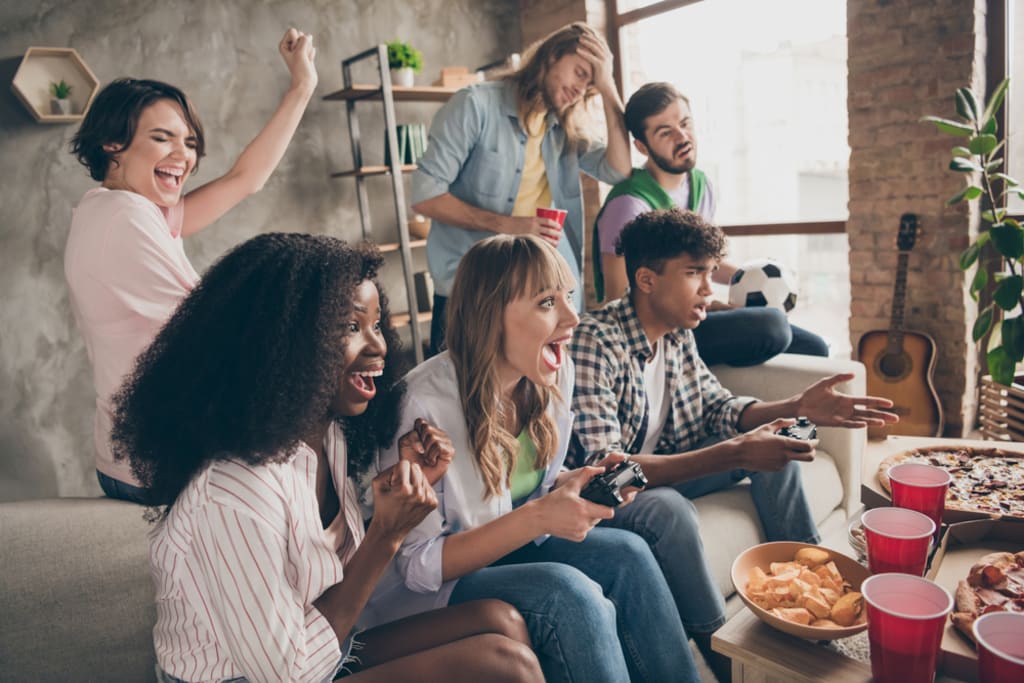The Influence of Gaming Culture on Personal Development and Social Interaction
Gaming Enhancing Our Social Connections?

In recent years, the world of gaming has evolved from a niche hobby to a global phenomenon, captivating millions of players across the globe. As gaming culture continues to thrive, it's important to explore its impact beyond entertainment and acknowledge its potential to shape personal development and social interaction. From fostering problem-solving skills to creating communities and nurturing friendships, the influence of gaming culture extends far beyond the virtual realm. In this article, I want to delve into the intriguing ways in which gaming culture influences personal growth and enhances social connections.
Building Resilience and Problem-Solving Skills
Viral keywords like "challenge" and "strategic thinking" aptly describe the foundations of many popular games. Gaming culture encourages players to overcome obstacles, think critically, and develop resilience in the face of adversity. Whether it's navigating complex puzzles, coordinating team-based strategies, or adapting to unpredictable situations, gamers constantly exercise their problem-solving skills. This translates into real-life scenarios where gamers learn to approach challenges with a determined and strategic mindset.
Fostering Creativity and Imagination
Gaming culture thrives on creativity and imagination. Many games provide players with tools for customization and allow them to create unique avatars, build intricate virtual worlds, or engage in artistic endeavors. This fosters a sense of creativity and encourages players to think outside the box, exploring new ideas and expressing their individuality. This aspect of gaming culture can have a profound impact on personal development, as it nurtures innovation, artistic expression, and imaginative thinking.
Collaboration and Teamwork
Contrary to the perception of gaming as a solitary activity, many games emphasize collaboration and teamwork. Multiplayer games often require players to work together, communicate effectively, and coordinate strategies to achieve shared goals. Through this interactive experience, gamers develop crucial social skills, such as effective communication, cooperation, and conflict resolution. These skills extend beyond the virtual realm and can have a positive impact on real-life relationships and collaborations.
Creating Communities and Fostering Social Interaction
Gaming culture has given rise to vibrant online communities that transcend geographical boundaries. Players come together to share their experiences, discuss strategies, and form lasting friendships. Online gaming platforms and social media have become the virtual gathering places where individuals with shared interests connect and engage. These communities foster a sense of belonging and provide a supportive environment where gamers can develop social skills, build relationships, and celebrate their shared passion.
Cultural Exchange and Global Awareness
The immersive nature of gaming allows players to explore virtual worlds that often reflect different cultures, histories, and perspectives. As gamers engage with diverse narratives and characters, they gain exposure to new ideas and broaden their understanding of the world. Gaming culture can facilitate cultural exchange, promoting empathy, tolerance, and global awareness. Through online multiplayer games, players have the opportunity to interact with individuals from different backgrounds, promoting cross-cultural understanding and breaking down societal barriers.
Leadership and Entrepreneurial Skills
In the competitive landscape of gaming, players have the opportunity to cultivate leadership skills. Whether leading a team or organizing gaming events, gamers can develop qualities such as effective decision-making, strategizing, and managing resources. Furthermore, the rise of esports and streaming platforms has given birth to new avenues for entrepreneurial pursuits. Players can become content creators, streamers, or professional gamers, honing skills in marketing, branding, and community management.
In conclusion, gaming culture extends beyond entertainment, influencing personal development and social interaction in profound ways. Through problem-solving, creativity, teamwork, and the formation of online communities, gamers enhance their skills and forge meaningful connections. Embracing the positive aspects of gaming culture can contribute to personal growth, foster social interactions, and provide a platform for individuals to explore their talents
About the Creator
L A McFarlane
I love writing about pop culture, delving into thought-provoking themes and subjects that motivate and challenge readers' perspectives and encourage them to reflect on their own beliefs.
I’m also currently writing my first fictional novel.






Comments
There are no comments for this story
Be the first to respond and start the conversation.